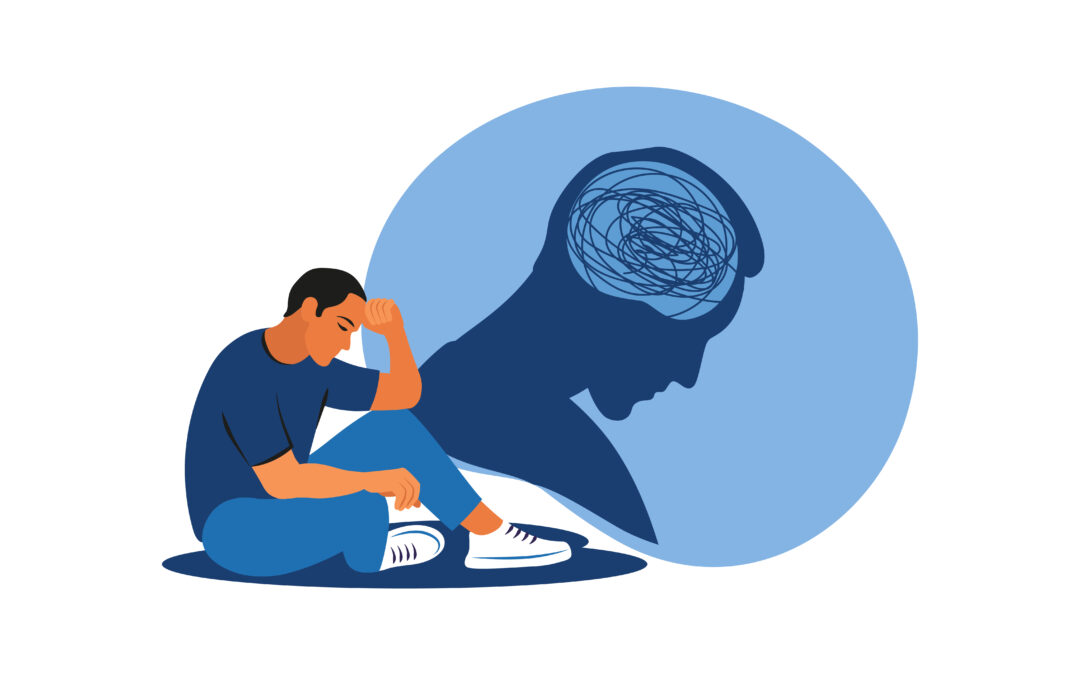Depression is a common but serious mental health condition that affects every aspect of a sufferer’s life. Too often, men living with depression go undiagnosed due to the stigma associated with ideas of masculinity. However, one in eight men will suffer from depression at some point in their lives. Recognizing depression in men or in yourself is essential in order to seek support. If you or someone you know is experiencing symptoms of depression, don’t ignore them.
Beating the Stigma
Men living with depression often go undiagnosed for many reasons. Some men are less likely to open up to others, keeping their feelings bottled up inside. This makes it easy to brush aside the symptoms of the disorder, which include loss of appetite, a lack of interest in things you used to enjoy, feeling tired, or suffering from sexual issues. You might also experience feelings of anger or irritability while suffering from depression. It’s important to understand that getting help is not a sign of weakness.
Recognizing the Signs
Everyone experiences depression a little differently, but in general, men and women tend to show different symptoms. This could be due to hormones, brain chemistry, or even stigmas around masculinity. Men might not show the classic signs of depression, which makes it harder to identify—and even harder to ask for help. Here are some signs to look out for in yourself or someone you care about:
- Overworking or constantly staying busy to avoid emotions.
- Isolation from friends and skipping social events.
- Drinking too much or using substances to numb the pain and emotions.
- Trouble sleeping or sleeping more than usual.
- Getting irritated or angry over little things.
Recognizing the signs of depression is the first step to better mental health. Depression looks different for everyone, but if any of this sounds familiar, it might be time to check in with yourself or with someone you trust and seek help.
How to Cope with Depression
Having tools on hand to help you deal with depression will get you feeling like yourself again. Here are a few ways to cope:
- Note your emotions: Sometimes, it’s hard to understand or name what you’re feeling. By writing down what you are going through, it can help you make sense of things and start to figure out where your depression is coming from. From there, you can begin taking steps toward feeling better and addressing the root of the issue.
- Confide in Someone You Trust: Talking to someone you trust, whether that’s a close friend or a professional therapist, can help you to sort out your feelings and find a new path to feeling better.
- Exercise: Some research has shown that exercise can be as powerful as medication with battling the symptoms of depression. Sticking with a routine that might include walking, swimming, or weight training can improve your mood and your fatigue levels.
- Pay Attention to Diet: Eating and drinking habits directly affect how you feel on a daily basis. Cutting down on sugars and refined carbs, limiting alcohol intake, and adding healthy foods like fatty fish, spinach, and bananas will give your mood a boost.
- Try Ketamine Treatment: If you find that your depression doesn’t improve with traditional medications and therapy, you might consider ketamine treatment. Ketamine treatment has been shown to work quickly with lasting results. Schedule a consultation today to find out if this option is right for you.
Seeking Help
It’s important to recognize the signs of depression in yourself or in those around you as untreated depression can lead to serious consequences. According to the National Institute of Mental Health, less than half of men with depression seek help. That means millions of men are suffering with depression in silence. While women are more likely to attempt suicide, men are about four times more likely to die by suicide, mostly due to the methods used.
Seeking support is crucial for your own mental health and quality of life. By seeking help, you also break the stigma for other struggling men. If you or someone you know is in crisis, don’t wait to seek support. The Suicide & Crisis Lifeline is 988 and it’s available 24/7, every day of the year.
You don’t have to face this alone; we are here for you, and together, we can help you feel like yourself again. For more information about our services and how we can support your mental health journey, please contact Ketamine Greater Boston today. Your well-being is our priority.
Contact Ketamine Greater Boston


Recent Comments